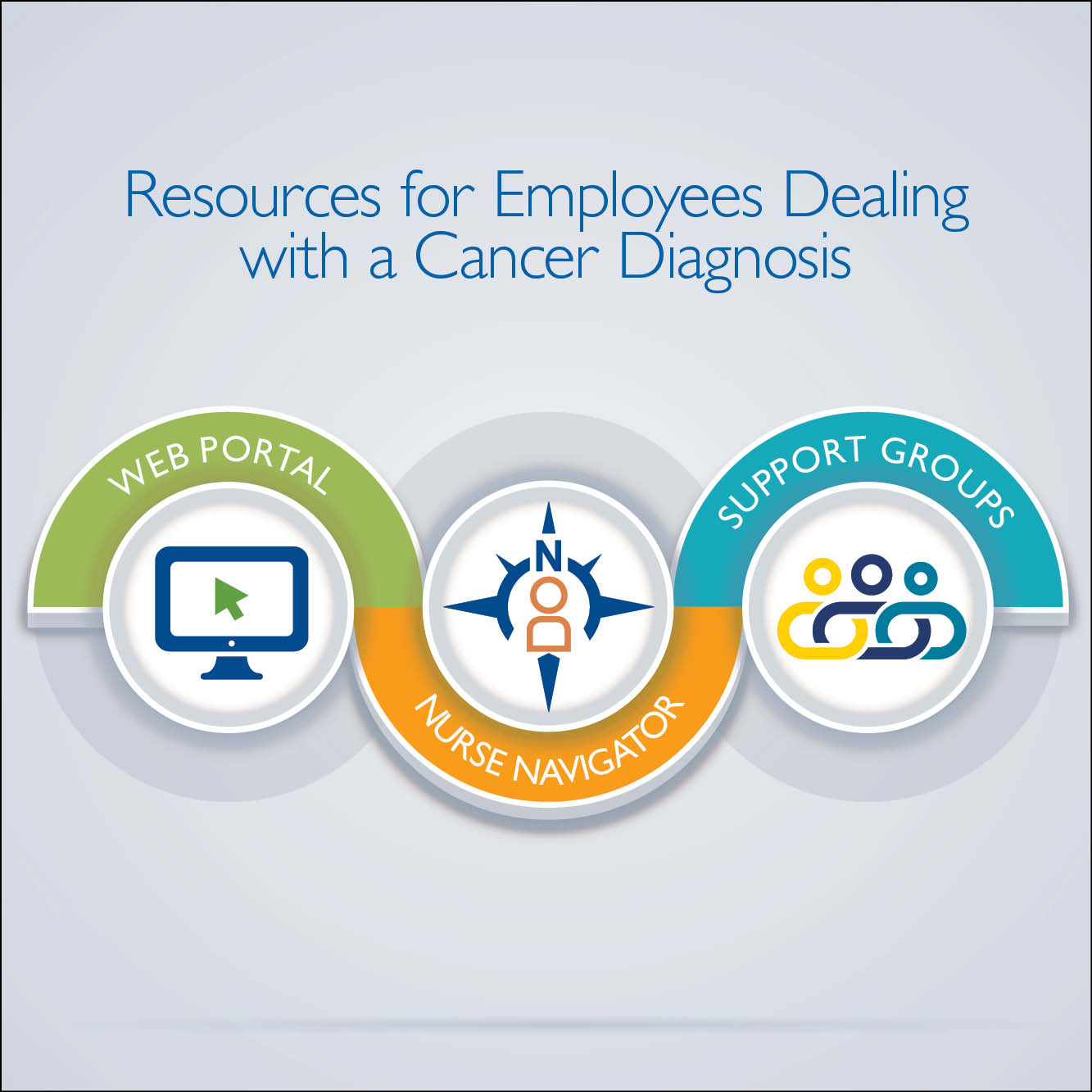Three years ago, while changing into pajamas, Joselyn Witherspoon felt four lumps in her breasts. Fearing the worst, the Johns Hopkins oncology technician rushed to get a diagnostic mammogram the next day at the Johns Hopkins Breast Center.
Her doctor performed a biopsy, which tested positive for cancer. “It felt like my heart fell out of my body,” Witherspoon says, recalling the moment when she learned that she would need a double mastectomy, chemotherapy and radiation.
Witherspoon had spent 28 years as a post-anesthesia care unit technician, supporting patients after cancer surgery. Anxiety dogged her. How would she endure months of treatment with little income to support her family? Would she still have a job after her recovery?
Her supervisor, Susan Humphreys, reassured her and introduced her to an online resource, then brand new, that could help her to understand and navigate the landscape of her disease.
Work Stride, available free to employees of Johns Hopkins Medicine, is a web-based resource that offers advice through videos and links to help users regain a sense of normalcy after a cancer diagnosis. An oncology nurse, available by phone, will listen to each individual situation and offer guidance through the stages of treatment. Employees can also use the service for parents, spouses, children and/or siblings who are diagnosed with cancer.
In addition, the site serves as a resource for supervisors, suggesting how they can respond appropriately to their employees’ and co-workers’ needs while reshuffling their workloads.
The interactive website was created by Terry Langbaum, then administrative director of the Johns Hopkins Kimmel Cancer Center, and Lillie Shockney, administrative director of breast cancer and survivor programs. Both women had survived cancer and recognized the need for a roundup of resources to help guide employees affected by the disease.
Spreading the Word
Managing Cancer at Work launched at Johns Hopkins in 2015. It is also available to employers across the country through Johns Hopkins HealthCare Solutions, a business team that manages the program and connects the marketplace to the wide range of Johns Hopkins’ research-based products and services.
At first, only a handful of the approximately 40,000 eligible Johns Hopkins employees and their dependents took advantage of the program, says Solutions’ Executive Director Mark Cochran. Now, thanks to positive feedback and greater awareness, some 350 Johns Hopkins Hospital employees have called nurse navigator Marie Borsellino to coordinate personalized care.
Witherspoon was among the first. “I never expected a program like this to do so much; it really fights for you and helps you get through the tough times,” she says, noting Borsellino’s assistance with finding ways to reduce her expenses. After eight months on medical leave, Witherspoon received a call from her supervisor, who suggested she return part time.
“Even though it wasn’t 40 hours a week,” says Witherspoon, “it was a steady paycheck. And that meant the world to me.”
The nurse navigator’s first duty, says Borsellino, is to ensure that the employee is connected with the appropriate oncologist to discuss the cancer diagnosis and treatment plan. Next, the two talk about the employee’s work situation and explore human resources policies and workplace protections. They also talk about privacy and how to prepare for meeting a manager to go over upcoming treatment. Other topics include short-term disability and financial and transportation challenges.
Witherspoon says Borsellino “listens and then finds ways to help,” for example arranging physical therapy to ease Witherspoon’s back pain and encouraging her to attend monthly lunchtime support groups.
A Marketable Tool
In May, oncology nurse navigator Eden Stotsky-Himelfarb, also based at Johns Hopkins, joined the Managing Cancer at Work team to help with the growing number of employees using the resource.
Pitney Bowes, a mailing and shipping company based in Stamford, Connecticut, was the first outside company to sign up. Since then, several more businesses have come on board, including AARP (for their employees), Nissan and Novartis. Each participating company spends about 70 cents per employee per month to purchase the service. Roughly 250,000 employees and family members, including those at JHM, are now eligible to use Managing Cancer at Work.
Borsellino guides non-Hopkins employees and their family members to National Cancer Institute-designated cancer centers if their diagnosis requires them to be seen at such institutions. She also connects them to oncology nurse navigators in their own communities for local resources and support.
Each year, approximately 500 Pitney Bowes employees are diagnosed with cancer, says Mary Bradley, the company’s director of health care planning. Currently, 200 Pitney Bowes employees are accessing the website; 50 are taking advantage of the nurse navigation.
Bradley praises the program “for the knowledge and empathy it shows when it comes to helping employees and their families during a difficult time.”
Now that her immune system is stronger, Witherspoon has resumed doing what she loves most: taking care of patients full time and spending her leisure hours with her grandchildren and great-grandchildren. She also checks in regularly with Borsellino. “I’m so grateful [for this program],” she says. “I hope every employee battling cancer takes advantage of [it].”



